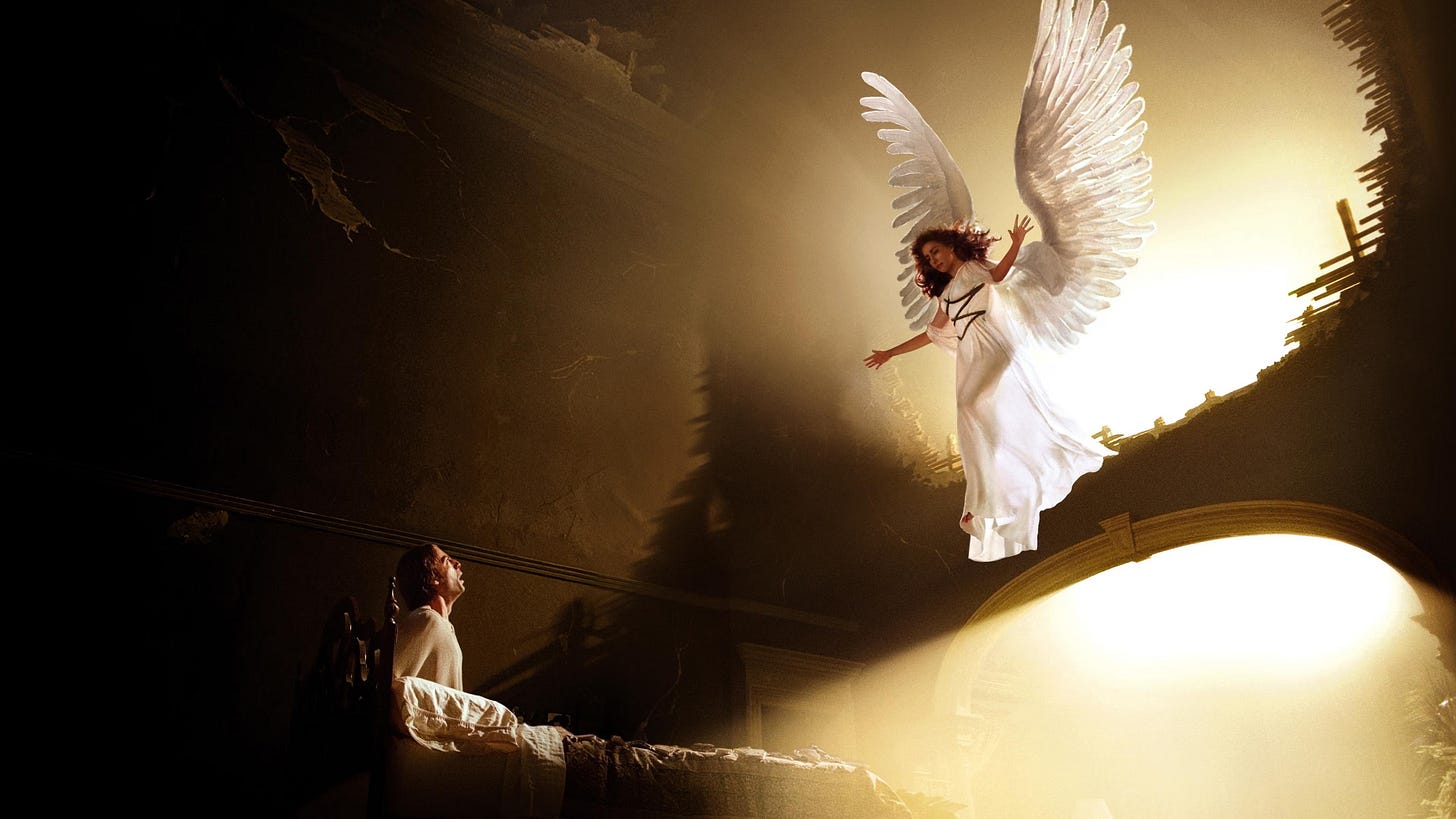Something to watch tonight: Thursday 6 June
Angels in America (Nichols, 2003)
Several reviews that I’ve read have described Freud’s Last Session in terms of the constraints of its origin as a stage play.
I confess I fell into this trap too – “Don’t get me wrong, two people talking in a room for 90 minutes can be riveting – on stage or screen – but only if the conversation goes somewhere.” – but on further reflection I was unhappy at some of the assumptions being made.
Namely, that cinema adaptations of theatre productions need to be “opened up” somehow and that the constraints of the stage are things that need to be overcome by filmmakers.
But I’ve been involved in tiny theatre shows that were epic in ambition. New Zealand shows that recreate Scott and Amundsen’s race to the South Pole, for example.
So, when you watch Mike Nichols’ 2003 adaptation of Tony Kushner’s 1991 Broadway hits Angels in America, be aware that you are watching Nichols’ cinematic representation of things that already existed on stage and in Kushner’s imagination.
Watching the first three episodes of the six-part series (representing the first play in the diptych, Millennium Approaches) I was surprised at how much I remembered from a production of that play 17 years ago (at the Hannah Playhouse in Wellington). Whole scenes came back to me, moments of stunning theatrical invention were replicated with cinematic techniques, and characters and their relationships returned vividly.
The two plays (the second is Perestroika and takes up the final three episodes of the mini-series) are set in New York in the mid-80s. AIDS is taking its toll on the gay community. Prior (Justin Kirk) is getting sicker from the disease and his partner Louis (Ben Shenkman) doubts that he has the strength to support him through it.
Mormon lawyer Joe (babyfaced Patrick Wilson) is closeted and fighting a truth that his emotionally troubled wife Harper (Mary-Louise Parker) is already guessing.
Joe is also being wooed by the most feared lawyer in New York, Roy Cohn (Al Pacino). Cohn – Trump mentor, rabid McCarthy-ite, and the man who sent the Rosenbergs to the electric chair – has secrets of his own.
Through a combination of dream sequences, hallucinations, visions, we realise that the inner lives of all these people are deeply conflicted and spiritually unresolved. Arguably, one of the points of the play/film is that their conflicts and spiritual deprivation are symptomatic of a malaise in America itself, a fundamental lack of reckoning.
The fact that these debates are played out with wonderful vivid prose – the temptation is to stop and rewind which you can’t do at the theatre – as well as incredible and ingenious leaps into the fantastic.
The arrival of two of Prior’s ancient ancestors (Michael Gambon and Simon Callow) to prepare him to become a prophet and expect a heavenly visitation are particularly amusing.
Angels in America was a huge hit for HBO. At the time it was the only show to win every Emmy award for which it was eligible, including all four acting awards: Pacino, Parker, Meryl Streep (for multiple roles), Jeffrey Wright (who had won a Tony for playing the same role on broadway).
Aside: One thing that I think might have changed in the intervening twenty years is that none of the gay characters in the film are played by ‘out’ gay performers. I’m not sure that would fly these days.



